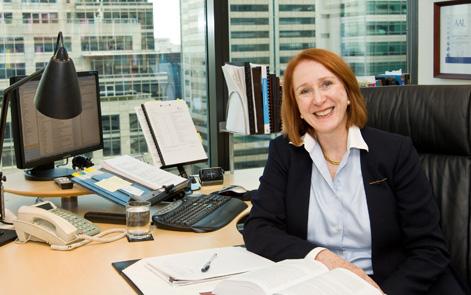‘Fair use’ clause to defend copyright in Australia
 THE Australian Law Reform Commission (ALRC) is recommending the introduction of a ‘fair use’ defence to help cover copyright issues brought about by new digital communication channels.
THE Australian Law Reform Commission (ALRC) is recommending the introduction of a ‘fair use’ defence to help cover copyright issues brought about by new digital communication channels.
The ALRC has released the final report from its inquiry, Copyright and the Digital Economy, in which it was asked to consider whether current copyright exceptions were adequate and appropriate in the digital era.
The report recommends the introduction of fair use as a defence to copyright infringement that essentially asks of any particular use: Is this fair?
Fair use is found in a number of countries, notably the United States, and it builds on existing Australian laws that allow the fair use of copyright material for purposes such as research, study and reporting the news.
The commissioner in charge of the inquiry, Jill McKeough said, “Fair use is a flexible exception that can be applied to new technologies and services, which is crucial in the digital economy.
“Fair use can facilitate the public interest in accessing mater
ial, encourage new productive uses, and stimulate competition and innovation,” Professor McKeough said.
“But fair use also protects the interests of writers, musicians, film-makers, publishers and other rights holders. It was very important that in an inquiry about exceptions to copyright, we not lose sight of the purpose of copyright law.”
The report also recommended some specific exceptions, such as for libraries and archives to make preservation copies, for judicial proceedings and royal commissions, and for public access to certain documents lodged with government.
There are also reforms to encourage the use of ‘orphan works’—a wealth of copyright material that is neglected and wasted because rights holders cannot be found.
“The 30 recommendations in this report are designed to allow for a more principles-based and less prescriptive approach to copyright law,” ALRC president Rosalind Croucher said.
“In a highly contested field, we have suggested reforms that will protect creators and their markets, provide appropriate access to material, simplify and modernise the law, and create a better environment for innovation and economic development,” Professor Croucher said.
The report follows an 18 month inquiry, during which the ALRC produced two consultation documents, undertook over 100 consultations and received more than 850 submissions.
A number of industry roundtables were held and an advisory committee of experts met three times to provide comment and feedback on the ALRC’s work.
Prof. Croucher thanked Prof. McKeough for her work on this complex inquiry, and the hundreds of people who contributed through submissions and consultations.
ends

 How to resolve AdBlock issue?
How to resolve AdBlock issue?